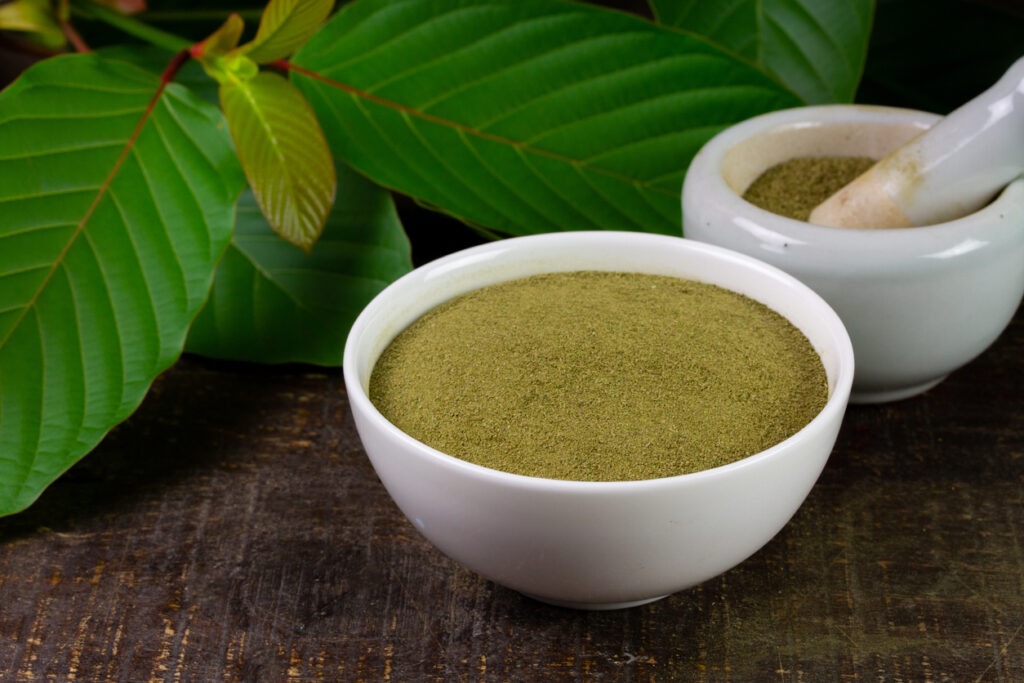
If a loved one suffers from pain and is looking for an alternative to pain meds, they’ve probably heard of kratom. In this blog post, we talk about what kratom is, how it’s used, how it can potentially help people, and as well as potential side effects.
What is Kratom?
This tropical tree is a native of Southeast Asia and is part of the coffee family — the consumption of its leaves produces a stimulant in low doses as well as a sedative in higher doses. Unfortunately, these effects can lead to physiological and psychological dependence and psychotic symptoms.
Kratom leaves have two prominent psychoactive components (7-hydroxy mitragynine and mitragynine) – the leaves are usually crushed to be smoked, placed in gel capsules, or brewed with tea. The tree has a wide distribution in Southeast Asia, where it is known by many names, including the following: Kakuam, Thang, Ketum, Biak and Thom.
How is Kratom Used?
While kratom is predominantly found throughout Asia, it is also available in Africa. People traditionally use it in various ways, such as chewing the leaves and making tea. It is used as medicine, as an alternative to opiates. It is also used for religious ceremonies
While people chew the leaves or use them for tea, kratom is also found in extracts, resins, and tinctures. People will also find kratom inside capsules, pills, and drinks, amongst other things.
Another example of its use can be found in Thailand, where people usually create a concoction made from kratom leaves, cola, cough syrup, and ice.
Why Is Kratom Used?
Because kratom reacts with opioid receptors inside the brain, many people use it to relieve pain or overcome opioid addiction. However, because the medical world is gradually moving away from using opioids for pain relief, more and more patients can no longer rely on them.
In their struggle to find effective alternatives, some people have turned to using kratom, which they found had similar effects for pain relief. Because they believe the product is natural, people tend to think it’s a safe option.
Furthermore, it’s also legal and can be easily sourced in various states without the legal repercussions of other drugs.
What Does It Do?
In low doses, kratom can make the user more alert and can act as a stimulant where users have reported feeling an increase in talkativeness and physical energy. But when taken in higher doses, kratom can cause the following:
- Pleasure
- Sedation
- Decreased pain
What are some potential side effects?
It is good to know potential side effects of any substance you choose to ingest. Kratom’s side effects include the following:
- Itching
- Nausea
- Dry mouth
- Sweating
- Constipation
- Tachycardia
- Increased urination
- Drowsiness
- Vomiting
- Loss of appetite
Is Kratom Legal?
While kratom isn’t currently controlled by the Controlled Substances Act, it is legal to buy and sell in the U.S., except for in a handful of states that have either regulated it or banned it outright.
Why You Should Visit Smokin Treasures
At Smokin Treasures, our head shop has the highest-quality delta-8, CBD and kratom products. We also have growing supplies for all your hydroponic needs.
Located in Parkville, MD, come and visit our shop today!


